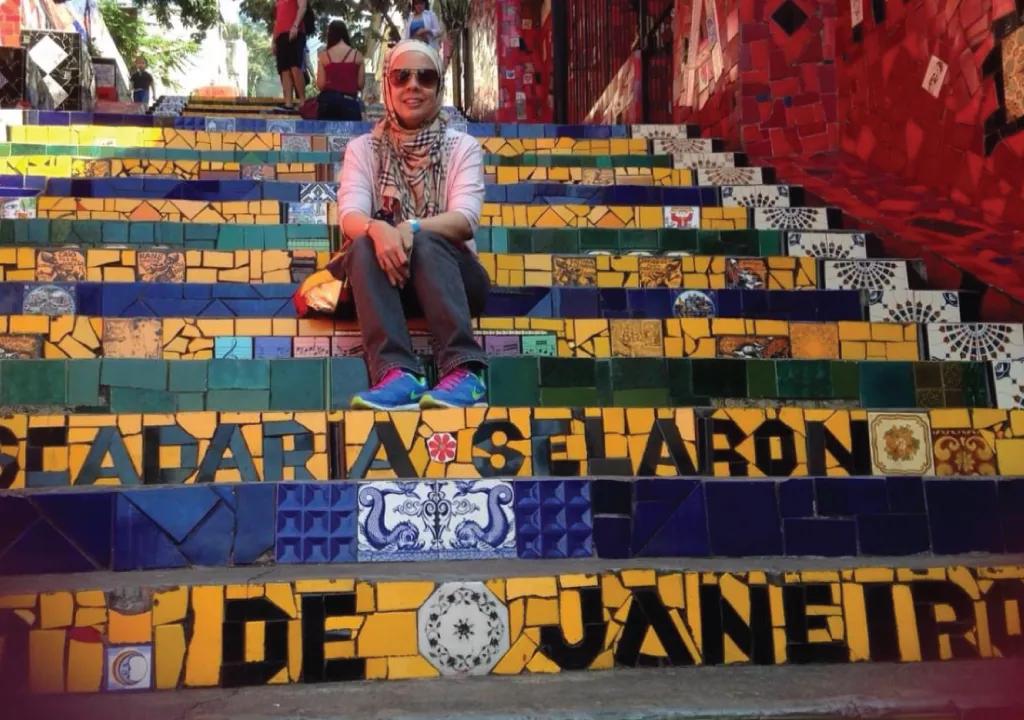How Do We Become Great Communicators?
Two decades in academia, one of which was spent living abroad. How does that make someone a great communicator?
“When I decided to return to Malaysia last year during the pandemic, I was not expecting a quick job offer. When Sunway University sent me an offer, I was overjoyed as my purpose was aligned with the University’s mission, which is to ‘help students become independent, lifelong learners who actively pursue knowledge and appreciate its global application to economic, political, social and cultural development; and develop strong leadership qualities and communication skills.’ It was exactly what I wanted.”
As someone who values communication and culture, the author considered developing communication skills in students as important as developing their knowledge in the sciences when it comes to getting them future-ready for a continuously globalising world.
Even more so now that there’s a growing body of research that supports diversity as key to organisational performance. A study by Gartner demonstrates that a highly diverse environment can improve team performance by up to 30% and another by McKinsey showcases that diverse companies outperform their less diverse peers by 36% in profitability.
From her experience abroad, she fervently believed that cross-cultural experiences and communications can be deeply enriching for students or anyone for that matter - be it for their personal development or their career and business development in a globalised economy.
The famed linguist, Professor Deborah Tannen once stated, “In fact, however, most discourse analysts have a genuine concern with real-world issues, and cross-cultural communication is crucial to nearly all public and private human encounters. At the most global level, the fate of all people, indeed the fate of the earth, depends upon negotiations among representatives of governments with different cultural assumptions and ways of communicating. Moreover, to accomplish any public or private goals, people have to talk to each other, and in more and more cases, the people communicating come from more or less different cultural backgrounds.”
Cross-cultural experiences can change or shape a person. Dr Norizzati is living proof of this. Having lived in several countries, she has become more than just a communication academician. It transformed her into a better person. Her communication skills and confidence increased as she put herself out there, talking to people from diverse backgrounds. It was a challenge, but it developed her exponentially.
From being bilingual, she became multilingual. In addition to Bahasa Melayu and English, she now speaks fluent Portuguese (picked up during her time living in São Paulo, Brazil) and Indonesian (practised when living in Jakarta, Indonesia). She also managed to improve her Arabic, a language studied for three years in high school.
She learnt to communicate across cultures beyond learning the languages themselves. When communicating with diverse people, one of the things one will learn quite quickly is how one talks and listens is deeply influenced by culture. One learns how to evaluate and interpret others from the cultural context that they are from, rather than from one’s own.
How did all this help her develop personally? By befriending people from multicultural backgrounds, she overcame fears, learnt different languages, and cultures and cultivated meaningful relationships unfettered by cultural boundaries. By befriending people from diverse backgrounds, instead of associating herself only with people from similar backgrounds, she was exposed to new ideas and new ways of thinking that benefited her as an academician. Imparting these experiences, and international exposure helped her be a better educator to the students.
Now she can share my stories with her students - the values learnt, and the experience and cultural exposure that have enriched her. These experiences help her students broaden their imaginations and horizons as they design their own futures. Most importantly, the way she communicates with them isn’t the same now compared to years ago. She accumulated the cultural differences learnt and adapted to and combined them with who things are here in Malaysia, one of the most multicultural societies in the world.
One of the things that awed her when she first arrived at Sunway University was the opportunity to learn cross-cultural communications on campus. The president is Greek, our pro-vice-chancellor is British, her dean is Kiwi, associate dean an American and, colleagues in the Department of Communication were also exceptionally culturally diverse. This is one of the main reasons she declined the offers from other universities: the cross-cultural opportunity here was not readily available at other universities. The multi-cultural environment here could help anyone hone their cultural adaptation as it plays a great role in communication efficiency.
She believes that her academic background coupled and experience of having lived in four countries has made her not only a good communicator, but a better educator and a person. Quoting her PhD thesis (2018), “Further effort needs to be executed to search for explicit cross-cultural communication.”
Dr Norizzati Azudin
School of Arts
Email: @email
This article was first published in Business Today, 5 November 2022.




